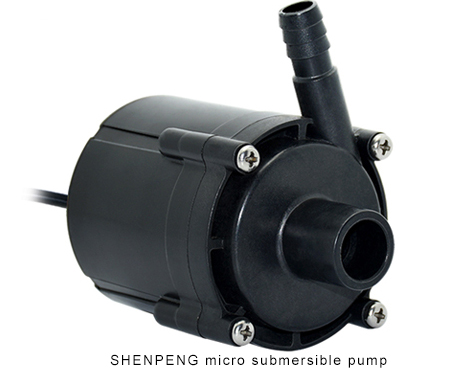Detailed introduction of submersible pump
Published:2022-12-16
Submersible pump means that the water pump is completely submerged and can work normally. We call it submersible pump, which saves the trouble of water inlet pipe and ordinary water pump.
Submersible pumps are widely used for domestic water, mine rescue, industrial cooling, farmland irrigation, seawater lifting, ship load regulation, fountain landscape, central air conditioning cooling, heat pump units, cold pump units, urban, factory, railway, mine, industrial drainage, etc.

Basic parameters of submersible pumps
Including flow, head, pump speed, matching power, rated current, efficiency, outlet pipe diameter, etc.
The submersible pump consists of a complete set of control cabinets, submersible cables, lifting pipes, submersible pumps, and submersible motors.
Main classification of submersible pumps
In terms of the medium used, submersible pumps can generally be divided into three categories: clean water submersible pumps, sewage submersible pumps, and seawater submersible pumps (corrosive).
Installation method of submersible pump
1. Vertical use, such as in general wells;
2. Inclined use, such as in inclined roadways in a mine;
3. Horizontal use, such as in a pool.
Submersible pump selection steps:
List basic data:
1. Characteristics of media: media name, specific gravity, viscosity, corrosivity, toxicity, etc.
2. The diameter and content (mass or volume percentage) of solid particles contained in the medium.
3. Medium temperature: (℃).
4. The required flow rate for general industrial pumps can be ignored in the process flow of the pipeline system, but the impact of process changes on the flow rate must be considered. If agricultural pumps use open channels to convey water, leakage and evaporation must also be considered.
5. Pressure: The pressure drop (head loss) in the pressure piping system of the suction tank pressure drainage tank.
6. Pipeline system data (pipe diameter, length, type and number of pipe accessories, geometric elevation of suction tank to pressure tank), if necessary, should also be provided with device characteristic curves. When designing and arranging pipelines, the following items should be noted:
A. Reasonable selection of pipe diameter: Large pipe diameter, small liquid flow velocity, small resistance loss, but high price: Small pipe diameter can lead to a sharp increase in resistance loss, which increases the lift of the selected pump, increases belt power, increases costs, and increases operating expenses. Therefore, comprehensive consideration should be given from both technical and economic perspectives.
B. The maximum pressure that the discharge pipe and its pipe joints can withstand should be considered.
C. The pipeline layout should be as straight as possible to minimize the number of accessories in the pipeline and minimize the length of the pipeline. When turning is necessary, the bending radius of the elbow should be 3 to 5 times the diameter of the pipeline, and the angle should be greater than 90 ℃ as much as possible.
The discharge side of the water pump must be equipped with a valve (ball valve or stop valve, etc.) and a check valve to regulate the operating point of the pump. The check valve can prevent the pump from reversing and prevent the pump from being hit by a water hammer when the liquid is flowing backwards (when the liquid is flowing backwards, a huge reverse pressure will be generated and the pump will be damaged).
Determine flow head
Determination of flow
A. If the minimum, normal, and maximum flow rates have been given in the production process, the maximum flow rate should be considered.
B. If only normal flow is given in the production process, a certain margin should be considered. For large flow with ns>100, the flow margin of the inadvertent head pump should be taken as 5%. For small flow with ns>50, the flow margin of the high head pump should be taken as 10%. For pump with ns ≤ 100, the flow margin should also be taken as 5%. For pump with poor quality and poor operating conditions, the flow margin should be taken as 10%.
C. If the basic data is only for weight flow, it should be converted to volume flow.
submersible pump small,submersible pump for home,submersible pump aquarium,submersible pump with hose,submersible pump for pool,submersible pump near me
- Distribution in Water Heater Mattresses: Why BLDC Pumps Ensure Uniform Heating
- How BLDC Pumps Ensure Precise Flow in Water Dispensers
- Why BLDC Pumps Are Essential for Smart Toilets
- The Critical Role of Automotive Electronic Water Pumps in New Energy Vehicle Battery Thermal Management
- Noise Control Technology for Smart Toilet Water Pumps: Enhancing Quiet Operation in Modern Bathrooms
- Unveiling the Working Principle of Automotive Electronic Water Valves
- Comparative Analysis of Liquid-Cooled Pumps vs. Air-Cooled Systems for EV Charging Stations
- Technical Application of Brushless DC Motors in Energy Storage Circulation Pumps
- Water Heater Pump: Efficiency Upgrade for Low-Voltage Systems
- How Dishwasher Water Pumps Enhance Cleaning Coverage Through Stable Operation?
